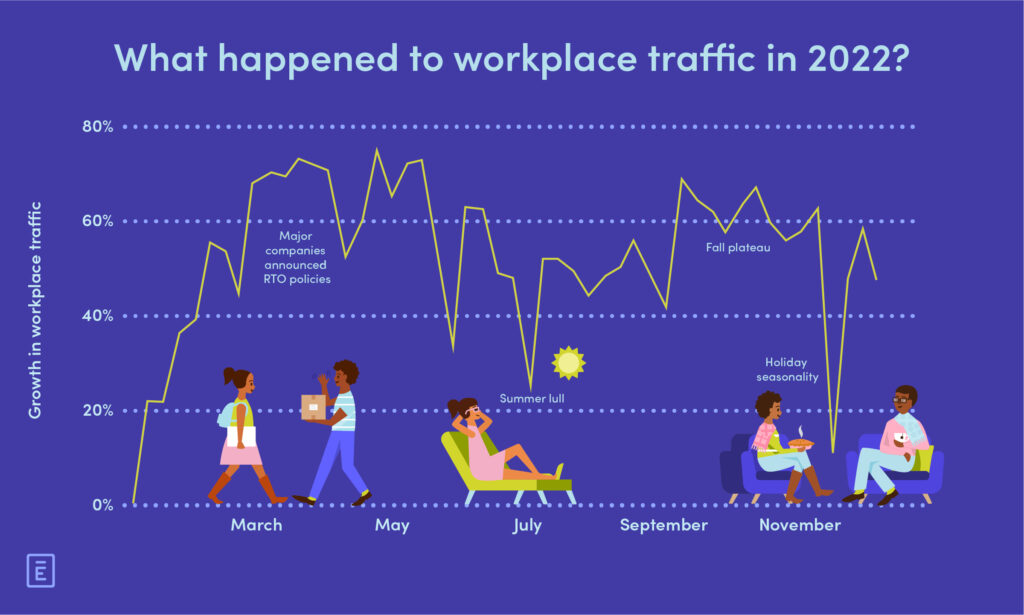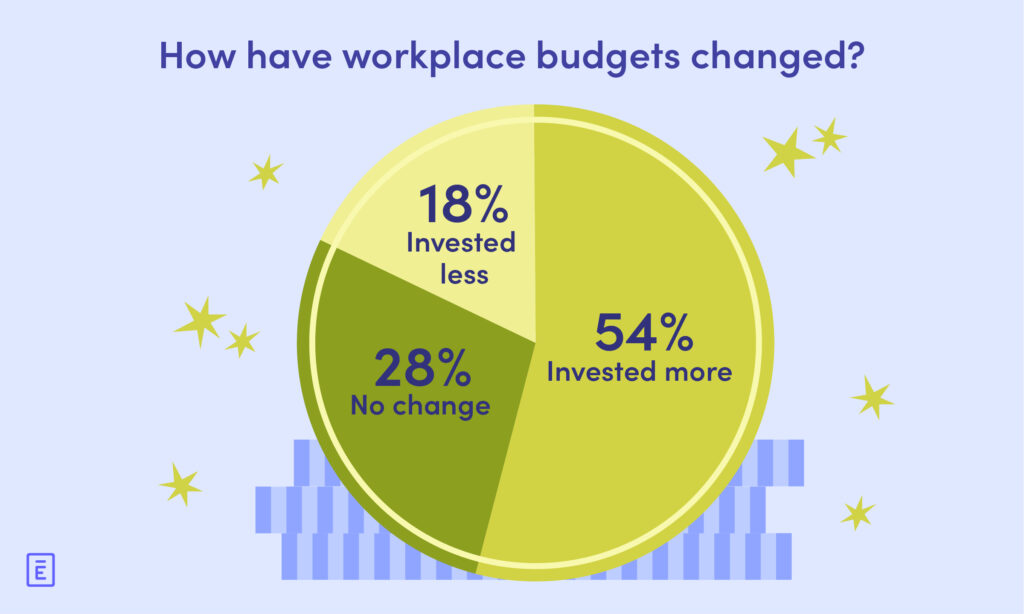If 2022 trends are any indication, workplaces worldwide aren’t going anywhere, according to a new report from Envoy. More than half of workplace leaders (54%) invested more in the workplace in 2022 than in the previous year, a signal that a physical footprint remains important for team building and collaboration.
Envoy’s new At Work: 2023 Workplace Trends Report dives into the company’s proprietary platform data, analyzing tens of millions of global workplace sign-ins, as well as desks and meeting room reservations. It weaves in survey data from hundreds of workplace leaders from technology, manufacturing, retail, healthcare, professional services, and media organizations.
It also answers questions that are top of mind for workplace leaders: How are people using their office space? Where are workplace dollars going? And what investments are on the table for this year?
Here are the key takeaways:
- In 2022, people returning to the workplace increased, but foot traffic was far from consistent. Workplace foot traffic grew by 37% in 2022 over the previous year. Yet, there was a lot of volatility throughout the year, which was likely the result of the economic downturn, shifting attendance policies, and expected holiday lulls.

- On average, the number of hybrid-first employees going into the workplace weekly jumped by 164% in 2022. Eighty-two percent of employees visiting the workplace in a given week were hybrid-first, which is defined as going onsite one to three days. Meanwhile 18% were office-first. These employees showed up to the office more than three days in a given week.
- Companies are banking on new workplace investments. Despite economic woes, 82% of leaders invested in their workplaces last year, with the trend expected to continue through 2023. Fifty-four percent set aside more money for their workplaces in 2022 compared to 2021, while 28% invested the same amount.
- Investment in office efficiency is top of mind for workplace leaders. Of those that made more investments in their workplace last year, 63% of leaders said they invested in conferencing technology, such as monitors and cameras, to improve communication between those remote and those onsite. Fifty percent invested in onsite events and programs; 36% into visitor management; and 27% into space management. Even with headlines proclaiming a commercial real estate slowdown, nearly a quarter (24%) invested in real estate expansion last year.
- This year, workplace leaders plan to spend their budgets on making sure employees have a great experience onsite. Thirty-six percent are planning for more onsite events and programs, and 24% will be providing more food.
- Eighty-three percent of companies reconfigured their workspace to optimize for employee experience. Many added more collaboration spaces (36%), more desks (23%), and more meeting rooms (22%). Nineteen percent made cost-saving decisions and reduced their real estate footprint with fewer desks (11%) and meeting rooms (4%).
- More than half (58%) of meeting rooms are booked a month or more in advance. Thirty-three percent are booked the day of, allowing for impromptu or spontaneous meetings. Despite 81% of employees scheduling their office days the morning before heading in or even as they’re walking up to the front door, 58% of meeting rooms are still booked a month or more in advance. Employees know they need to reserve coveted meeting space ahead of time—especially recurring meetings—to prevent wrangling for space at the last minute.

“While leaders may not agree on how to spend their workplace budgets, there is a common thread,” said Larry Gadea, CEO and founder of Envoy. “The success of their business depends on their people. And there’s no better place to bring your people together to solve problems, to collaborate, to ideate, to celebrate wins, and to get work done, than a familiar workplace.”
According to Envoy, the proof is in the data: workplace traffic is up. Employees are making more use of work space and resources. And both companies and their employees are investing even more time and money in workplaces around the world.
The full report is available here.

